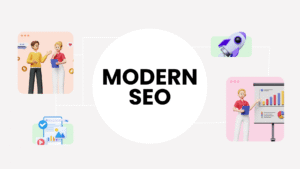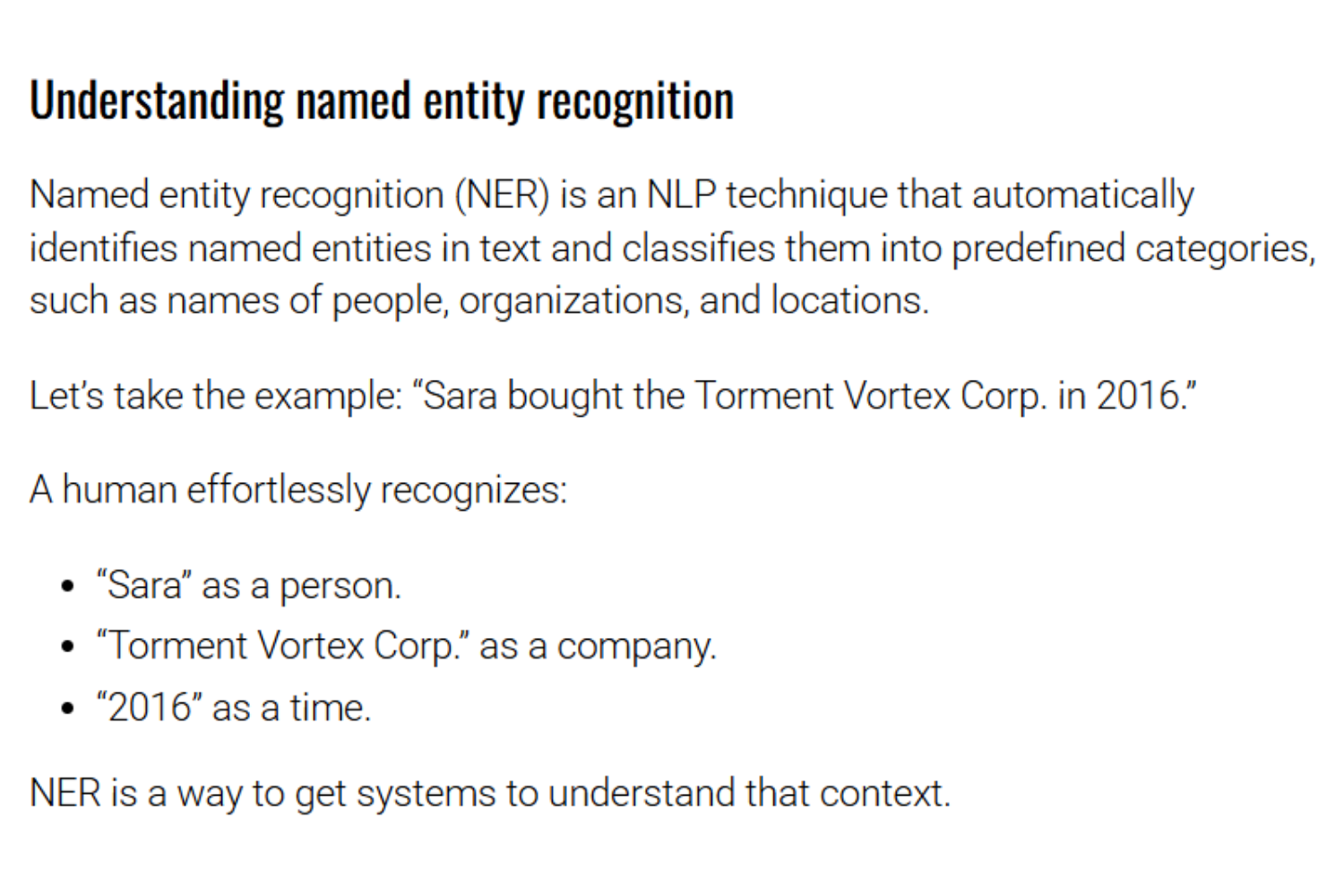Search behavior has evolved over the years, A LOT. While keyword optimization and topical authority are still fundamental to SEO, modern search demands a more intelligent and contextual approach to ranking.
One of the most powerful shifts in this space is the rise of Natural Language Processing (NLP), which allows search engines to better interpret meaning, not just match keywords.
In this blog post, we’ll explore the core concepts driving modern search, and the differences between NLP, LSI keywords, and Named Entity Recognition (NER), and how you can use them to meet Google’s expectations and improve your content strategy.
Because ranking on SERPs means being not only visible (but recognized as well) by Google’s eyes.
Table of Contents
ToggleWhat is NLP, and Why Do Modern Search Engines Demand It?
NLP stands for “Natural Language Processing,” a branch of artificial intelligence that enables computers to understand, interpret, and generate human language.
In the SEO world, NLP is becoming increasingly critical because search engines are now capable of understanding context, sentiment, and user intent far beyond the basic keyword match.
Think of NLP as Google’s translator. It helps algorithms decode not just what you said, but what you meant.
When you type a query like “best sunscreen for oily skin,” NLP helps the engine understand that you’re looking for product recommendations, skin types, and perhaps even local availability, delivering results that are more relevant and tailored. In simpler words, this is how you optimize for search intent.
How Was Search Shaped Before?
In the early days of SEO, search engines heavily relied on exact-match keywords and backlinks. Pages that stuffed the target keyword multiple times often ranked higher, even if they didn’t offer great value.
This system was easy to manipulate but didn’t serve the user experience.
As users became more sophisticated, Google evolved. The introduction of RankBrain, BERT, and now MUM marked the transition from keyword-based indexing to understanding intent and language context. Search became less about words and more about meanings.
This is also why Google, once in a while, launches core updates; system-wide algorithm adjustments aimed at evaluating content quality based on relevance, depth, expertise, and how well it aligns with user intent.
These updates prioritize helpful, people-first content, and penalize pages that rely on manipulative tactics or thin, unoriginal material.
How Do Machines Understand Language?

Machines understand language by breaking it down into components using NLP. They analyze grammar, sentence structure, syntax, and semantics to interpret the true meaning behind a query.
This process includes techniques like tokenization, dependency parsing, and sentiment analysis.
One of the most important goals of NLP in SEO is to detect search intent; whether the user wants to learn, compare, buy, or find something nearby.
Understanding this helps you tailor content that aligns not just with what people search for, but why they’re searching in the first place! Making it easier for you to produce content that ranks, matches and delivers to users!
Read more about: Which Search Engines Provide Truthful Information on the Internet?
The Use of LSI Keywords: From Myth to Reality
You’ve probably heard of LSI keywords (Latent Semantic Indexing).. Who hasn’t?!
The idea behind them is that related terms like “content calendar” or “audience targeting” for the main keyword “content marketing” to help improve context and relevance.
While it sounds logical, the SEO community often misuses the term. But what does this really mean?
Well, Google does not explicitly use LSI algorithms. What it does use is semantic analysis. That means Google looks for conceptually related terms, synonyms, and entities that naturally occur around a topic.
Think of it like this:
- Good Practice: Including terms like “editorial strategy,” “brand messaging,” or “SEO distribution” in a blog about content marketing.
- Bad Practice: Stuffing random synonyms to rank higher.
So, while LSI as a term may be outdated, the principle of building semantic relevance remains crucial and needed.
What is NER in NLP SEO?
Named Entity Recognition (NER) is another powerful NLP technique used to identify proper nouns and classify them into categories, like people, organizations, dates, products, or locations.
It’s how machines interpret the real-world references in your content.
Let’s break this down with the following snapshot:

source: search engine land
This process helps search engines understand context more accurately. If your content references “Google,”
“Dubai,” or “MENA startups,” NER allows the algorithm to identify and categorize these entities, improving your content’s relevance and authority in the eyes of the engine.
How Google Uses NLP in Search
Google’s NLP capabilities are now embedded in its core algorithm updates. For instance; BERT and MUM being the most notable.
- BERT (Bidirectional Encoder Representations from Transformers) allows Google to understand queries in context rather than isolated words.
- MUM (Multitask Unified Model) takes it further by understanding text, images, and even different languages.
So what does this mean for content creators?
- Focus on clarity and coherence, not just keywords.
- Use semantic-rich language and cover the topic from multiple angles.
- Incorporate entities like brand names, people, tools, and dates naturally in your content.
- Structure your content around search intent—informational, navigational, or transactional.
By aligning your content strategy with NLP principles, you’re not only satisfying search engines but also building a trustworthy, brand-centric experience for users.
Final Thoughts: Search Isn’t Just About Keywords Anymore
Search is no longer a game of who can stuff the most keywords. It’s about who can provide the most relevant, trustworthy, and contextually rich information.
By embracing NLP, understanding LSI’s real role, and implementing NER tactics, you future-proof your SEO efforts and build real topical authority.
The next step? Start applying these principles now and consider diving deeper into how each NLP component contributes to SEO.
Stay tuned; we’ll be covering this in our next blog post!
Contact the best content marketing agency in MENA. You can get a free website audit if you want our SEO specialists to analyze your website for weak and strong points.


